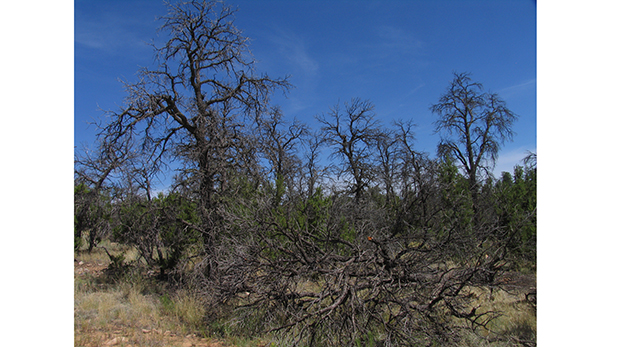 Dead pinyon trees, with smaller surviving one-seed juniper, in the Jemez Mountains of New Mexico.
Dead pinyon trees, with smaller surviving one-seed juniper, in the Jemez Mountains of New Mexico.By Melissa Sevigny, Arizona Science Desk
Climate change could skew the sex ratios of plants, a Northern Arizona University study published Tuesday reports.
The study – published in the journal Nature Plants - looked at dioecious species, plants which have a distinct sex, male or female. Scientists reviewed 83 experiments that exposed them to warmer or drier conditions to simulate climate change.
Kevin Hultine of Northern Arizona University and the Desert Botanical Garden in Phoenix is the study's lead author. Hultine said male plants had higher rates of photosynthesis under stress.
“What that means is that those lower rates of photosynthesis in females are going to put them at greater and greater disadvantage, which we presume will lead to greater rates of mortality,” he said.
Hultine said skewed sex ratios will be especially problematic for “foundation species” in the Southwest, such as cottonwood, willow, juniper and box elder.
Those species reproduce slowly and likely won’t be able to adjust to the quickly warming climate in the region, the study said.

By submitting your comments, you hereby give AZPM the right to post your comments and potentially use them in any other form of media operated by this institution.